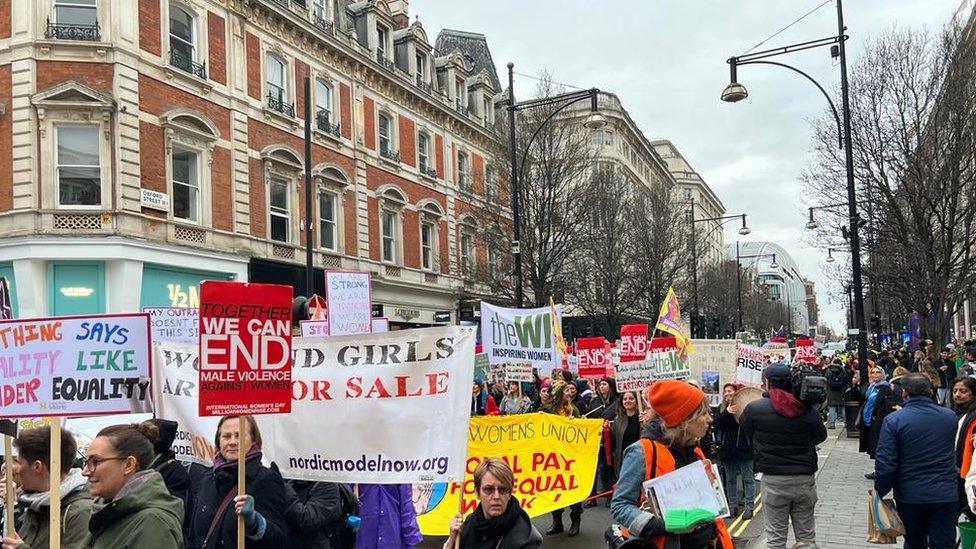Women's homelessness: 'I know if I call, someone will always pick up'
- Published
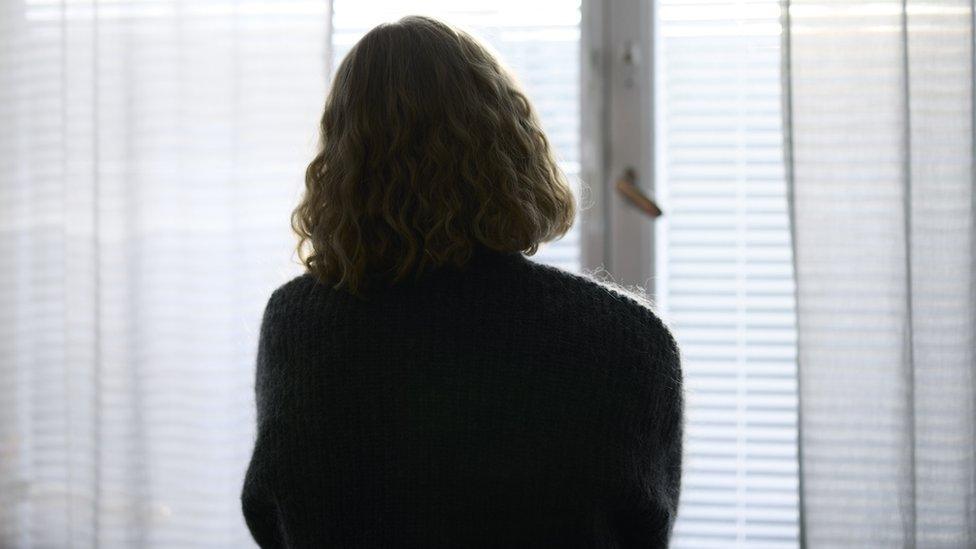
Women supported by the project have experienced homelessness through rough sleeping, supported accommodation or sofa-surfing
A woman who spent four years on the streets says she is "so appreciative" of a London homelessness service.
The Westminster Violence Against Women and Girls Housing First Project released its fourth annual report ahead of International Women's Day.
The service supports domestic and sexual abuse victims.
Julia, whose name has been changed, was helped by the project for about five years. She said: "I know if I call, someone will always pick up."
She has been housed in a flat in south London by the project and now shares her home with her dog and cat.
"I am so happy to be there," she said.
'Drinking every day'
She had always wanted pets, but when you're homeless, "you have to be responsible for yourself", she added.
The 44-year-old, from Warsaw in Poland, said she became homeless after the bar work she was doing came to an end.
"When I was on the street I was drinking every day," she said. "I was drinking a lot of alcohol."
She said she now hoped to reduce her drinking by swimming regularly - a sport she used to regularly enjoy.
"I have to do something to stop thinking about alcohol," she said. "I'm getting older, it's good for my body."
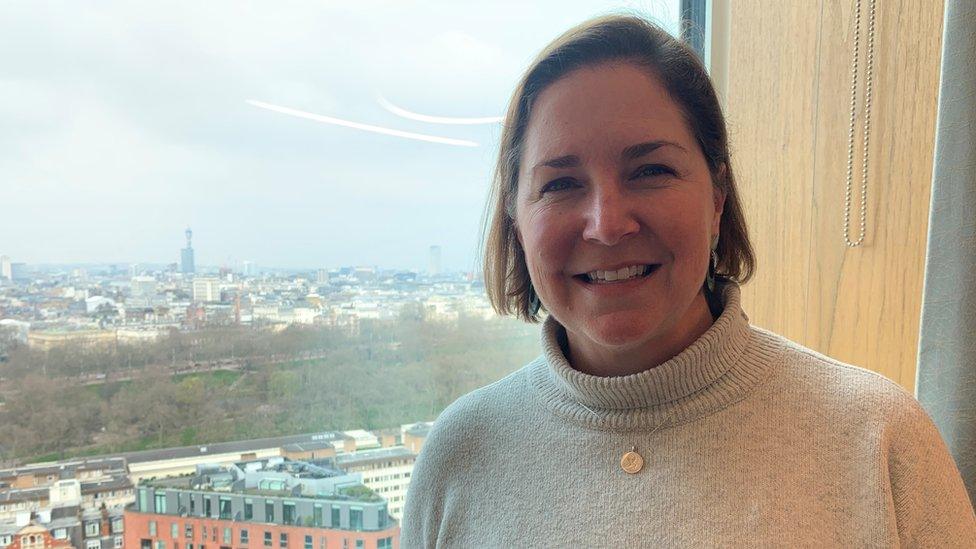
Domestic abuse commissioner Nicole Jacobs said she was inspired by the project
Nicole Jacobs, domestic abuse commissioner for England and Wales, said she was "inspired" by the project and its approach to women's homelessness.
"It's incredible what the evaluation has shown us and what works," she said.
The project is a partnership between Standing Together, Solace Women's Aid and Westminster City Council.
It works with eight housing associations to secure accommodation for women.
And its joined-up approach means that support is also available regarding substance misuse, physical and mental health and criminal justice engagement.
The project was launched in 2019 to support women who have experienced domestic abuse, sexual violence or exploitation and currently supports about 40 women.
All those helped by the programme have experienced homelessness through rough sleeping, supported accommodation or sofa-surfing.
'Hidden homeless'
Paula Barker MP, co-chair of the all-party parliamentary group for ending homelessness, praised the work of the service.
"It's abundantly clear to me that domestic violence is also a housing issue," she said.
"We know only too well homelessness is underpinned by trauma."
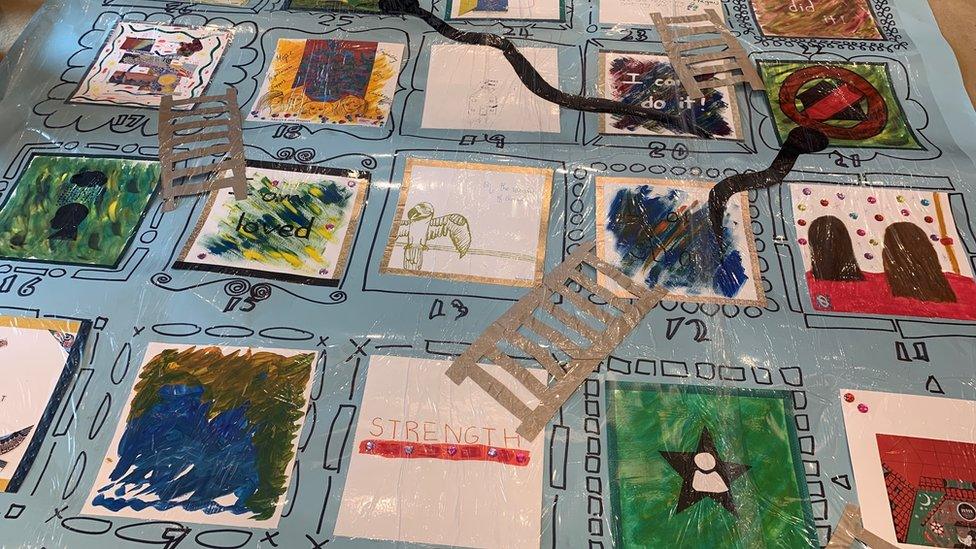
Artwork created by women and support workers from the project
The MP added: "Women rough sleepers are often the hidden homeless. Out of sight, out of mind, for fear of safety, facing abuse and coercion. That's why it's imperative on any incoming government to work with partners to roll out a dedicated rough-sleeping strategy for women."
The report, published on Thursday, stated that all of the women supported by the project between October 2022 and September 2023 have been able to sustain their tenancy.
Amy Smith, Housing First and homelessness programme manager, says the women were housed in any borough in London and have a say over the area where they would like to live.
And the women being supported are getting younger, she said, suggesting that they are getting help at an earlier stage.
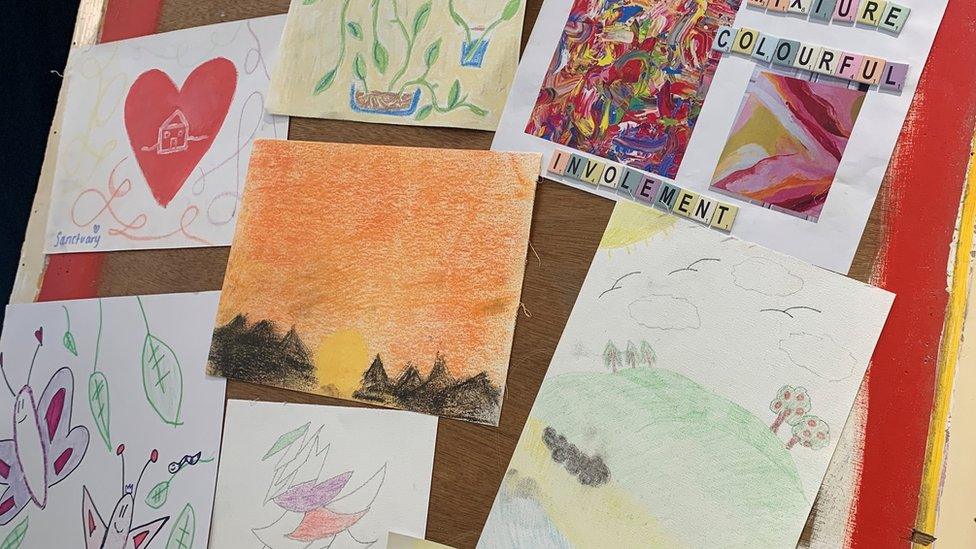
Jane, who has been supported by the service, said art helps her express herself
Jane, 48, whose name has been changed, has also been supported by the service. She said the team helped her with housing, healthcare, benefits and relationships.
"They make you feel better about yourself," she said.
Looking back on the year, women and support workers involved in the project were asked to create artwork that expressed how they feel about the support systems and barriers they have experienced.
It culminated in a colourful display shown at Westminster City Hall, as the latest report was discussed.
"I do a lot of art," Jane said. "You get time to just chill out and express yourself a bit. You can say what you want without saying it directly."

Listen to the best of BBC Radio London on Sounds and follow BBC London on Facebook, external, X, external and Instagram, external. Send your story ideas to hello.bbclondon@bbc.co.uk
- Published14 August 2023
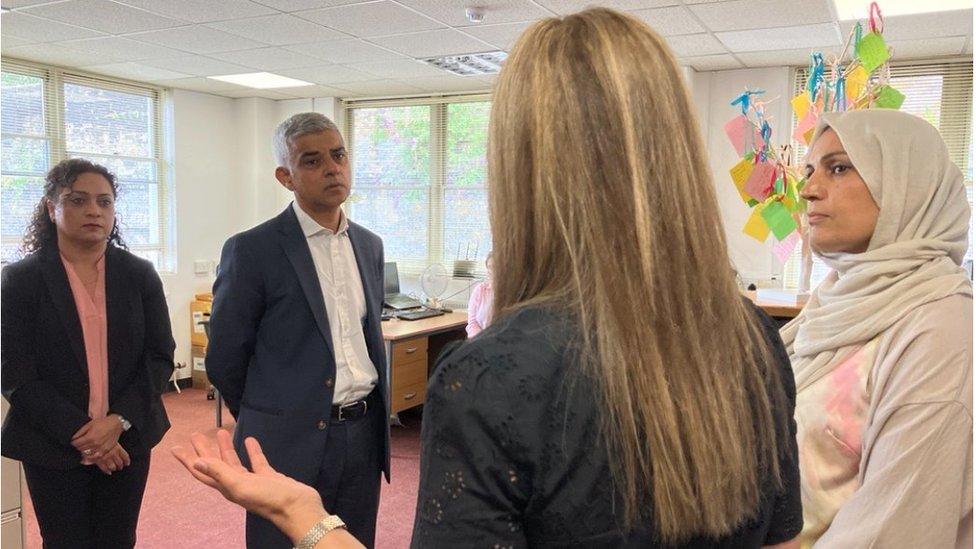
- Published4 March 2023
